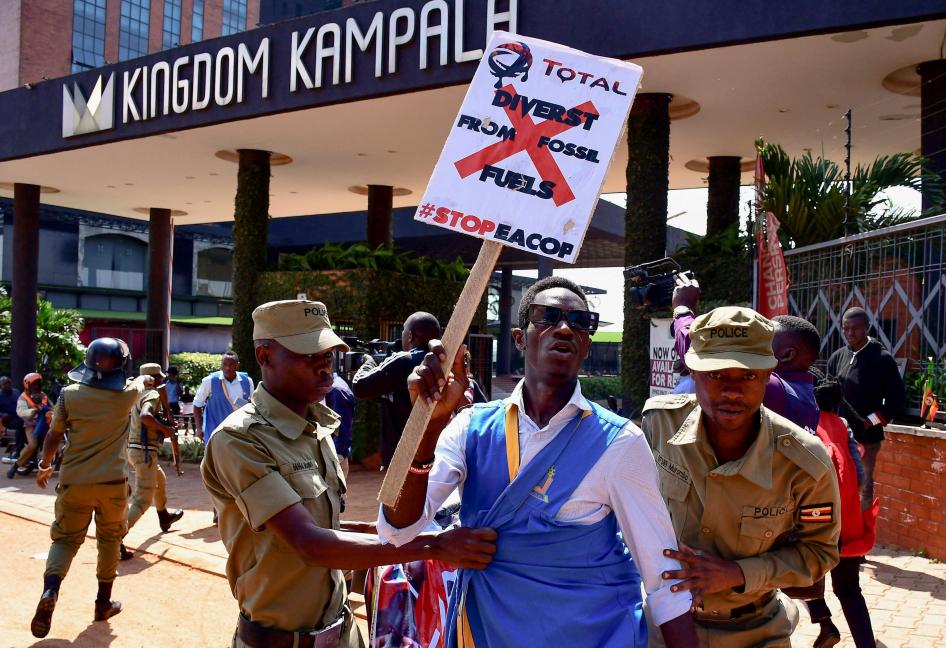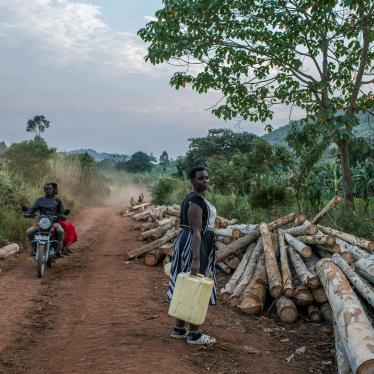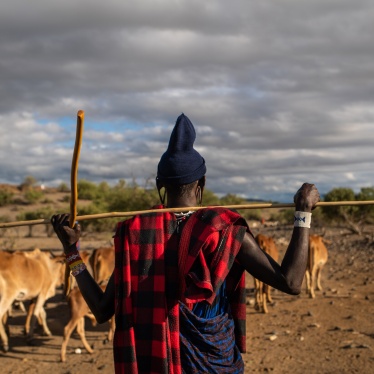Next week, four more students will appear before a Kampala court for participating in protests against the planned East Africa crude oil pipeline (EACOP) and for demanding a full and equitable phaseout of fossil fuels.
The students were arrested in September and are charged with the colonial era “common nuisance” offense, which the government has a track record of using to suppress legitimate protests.
The prosecution should look to the precedent set earlier this month, when a court dismissed similar charges against nine other anti-EACOP protesters, and drop these politically motivated charges.
The prosecutions are part of a deeply concerning escalation of threats against human rights defenders in Uganda. Last month, Human Rights Watch released a report documenting the Ugandan government’s crackdown on anti-fossil fuel activists and environmental defenders daring to voice concerns about the country’s oil sector development. It documented how they face harassment, including arbitrary arrests, for lawfully raising concerns over EACOP’s contribution to climate change and the future impacts of the project. In July, we also documented violations related to EACOP's land acquisition project, including inadequate compensation for landowners, undue pressure, intimidation, and threats of legal action against those who rejected compensation offers.
Environmental defenders in Uganda have heavily criticized EACOP because of the risks it poses to the environment, local communities, and its potential contribution to climate change.
The oil pipeline is one of the largest fossil fuel infrastructure projects currently under development globally. If completed, it will include hundreds of wells, that will transport oil via a 1443-kilometer pipeline – the longest heated crude oil pipeline in the world – connecting Western Uganda’s oilfields with the Tanzanian coast. The project risks locking in decades of greenhouse gas emissions and exacerbating the global climate crisis. Its construction comes at a time when there is growing consensus amongst experts, including from the International Energy Agency and the Intergovernmental Panel on Climate Change, that for governments to meet climate targets set out in the Paris Agreement, there cannot be any new oil, gas or coal projects.
Human rights defenders have the right to express their concern over a planned pipeline that poses grave environmental and human rights risks. The Ugandan authorities should respect their right to free expression and assembly and stop harassing EACOP protestors.
|
Dispatches
Ugandan Authorities Should Drop Charges Against Environmental Protesters
Students Arrested for Protesting Against Oil Pipeline
Your tax deductible gift can help stop human rights violations and save lives around the world.
Most Viewed
-
December 16, 2015
Syria: Stories Behind Photos of Killed Detainees

-
December 16, 2015
If the Dead Could Speak

-
August 29, 2024
South Korea’s Digital Sex Crime Deepfake Crisis

-
November 25, 2019
A Dirty Investment

-
October 16, 2012
Death of a Dictator





